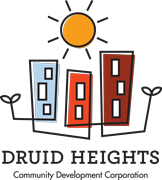An Article published in The Baltimore Sun by written by one of our Quantum Program participants.
In West Baltimore, a quantum of hope
Program helps disadvantaged youth see that their lives have value
When I walk through my neighborhood, I see 7- and 8-year-olds on the streets, and you can tell that they don’t think much of themselves. You know that they may have a parent who is struggling and doesn’t have too much time for them, and in school they are often told that they can’t achieve, that they are “bad” and no one seems to care.
It hurts my heart to my soul. I know what they are going through because I’ve been there. I felt like I was nobody. I was on the road to dropping out and probably would have been put out in the streets by my mom. I would have gotten deeply into drugs, and it wouldn’t have surprised me if I had ended up in the criminal justice system, like so many of my friends. Sometimes, sadly, we fulfill the stereotypes that are expected of us — because we believe them, too.
The federal government says my neighborhood, Druid Heights, has a Community Disadvantage Index of 10. That’s the worst possible number a community can receive, indicating the local population has a high percentage of people living below the poverty line and receiving public assistance, and a high percentage of female-headed families with children. There is a high incidence of HIV/AIDS, a dropout rate of 36 percent, and 42 percent of our children live in poverty. Many of us don’t make it to a career or college.
I was lucky. I got a lifeline.
The Quantum Opportunities Program, in partnership with the Druid Heights Community Development Corporation, is funded and guided by the Milton S. Eisenhower Foundation. It operates year round and helps students like me make it through high school and get to college. It focuses on youth development, job training and neighborhood revitalization, AIDS awareness and counseling in our West Baltimore neighborhood that was home to Thurgood Marshall.
When I discovered Quantum, I had poor grades. I wasn’t listening to my mom. I didn’t care because I was pretty convinced that I had no future, that my story was already defined by the disadvantage of our community.
I was told I could get paid a stipend if I went to Quantum, so at first I just went for the money. But after getting there I became inspired. I began to believe that I could be somebody. I dared to dream. Quantum provided us with homework help and laptops — which I didn’t have. They would talk to teachers or my mom and help me navigate problems in school and at home. For the first time, I felt that someone other than my mom cared about whether I graduated.
Quantum helped me apply for a job online. I was so proud when I was hired by the Parks and Recreation Department doing painting and maintenance. It feels good to give back and wonderful to make a salary. Most of the people I go to school with can’t find jobs. Youth unemployment in our communities is as high as 70 percent, and for young black men who drop out of high school, the national unemployment rate is 95 percent, according to Northeastern University.
My best friend didn’t get to go to Quantum. She ended up with a baby she can’t take care of. She does drugs and is dropping out of school. Quantum only had funding for so many students. It is all that I have in life.
I am applying to college and doing well in school. I was a positive influence on my boyfriend, who was going down the wrong path but now is working and going to school too. I want to major in criminal justice so I can help people like the young people I know. I am grateful, and I want to pay it forward.
We need to fund more programs like Quantum. We need those 7- and 8-year-olds to know that their lives do have worth. We need young people to know that there are people who see our value and care. We need to know that our nation does not revile us. Don’t see what some of us have become and think that is who we are. We are stereotyped and profiled, but my story shows that with a helping hand, we will achieve. Investing in us not only benefits young people like me but our community, our city and our nation.
Ranisha Coppage attends Carver High School in Baltimore.
